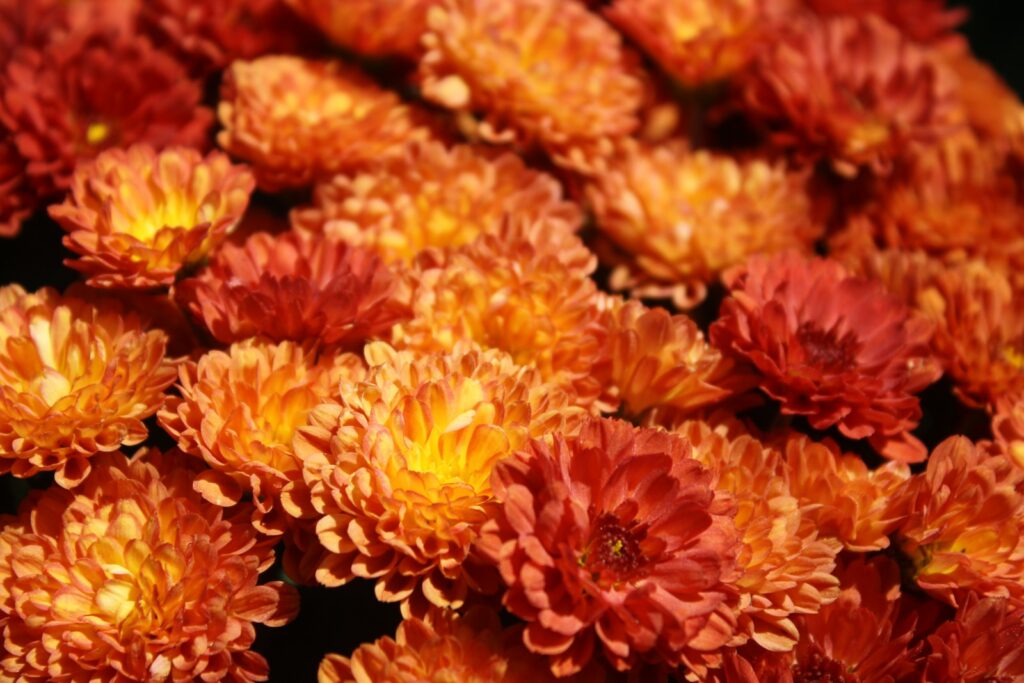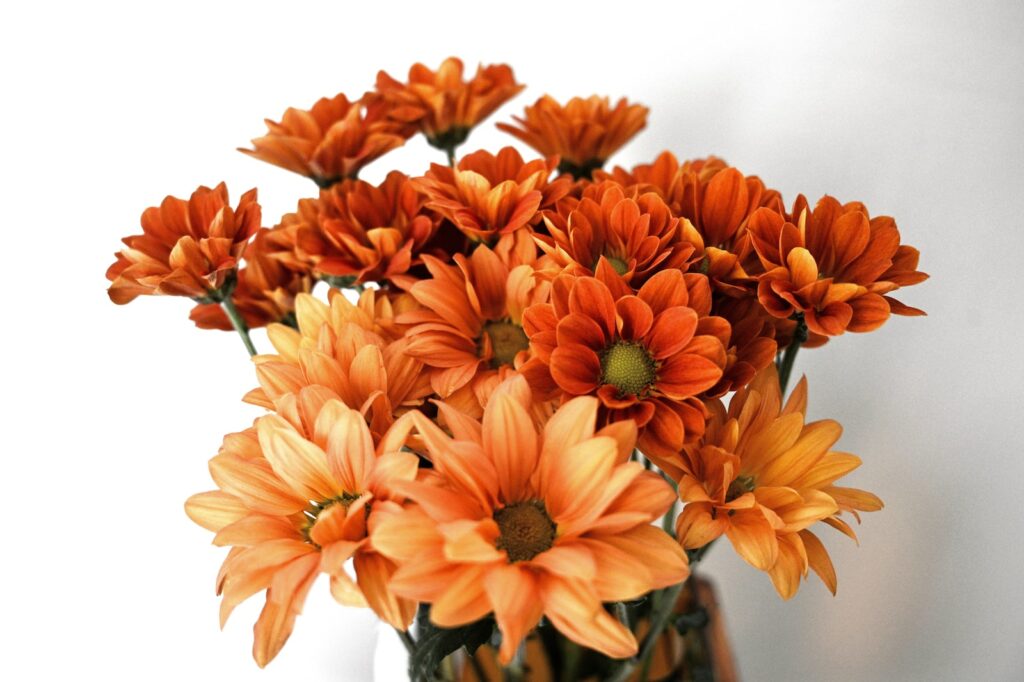
Does Rabbits Eat Mums? Exploring the Relationship Between Rabbits and Chrysanthemums
Rabbits are cute and fluffy creatures that can be found in many gardens and parks. They are known for their love of carrots, but do they also have a taste for mums? This question has been asked by many gardeners who have noticed their mums being nibbled on by rabbits.
The answer to this question is yes, rabbits do eat mums. Mums, also known as chrysanthemums, are a popular fall flower that can be found in many gardens. They come in a variety of colors and are often used for decoration during the fall season. Unfortunately, rabbits have been known to eat the leaves and flowers of mums, which can be frustrating for gardeners who want to enjoy their beautiful blooms.
It is important for gardeners to take steps to protect their mums from rabbits if they want to keep them looking their best. This can include using rabbit repellent, fencing off the garden, or planting mums in a raised bed. By taking these precautions, gardeners can enjoy their mums without having to worry about them being eaten by rabbits.
Table of Contents
Understanding Rabbits and Their Diet

Rabbits are herbivores, which means that their diet is primarily made up of plant-based foods. They require a balanced diet of hay, pellets, vegetables, and fruit to maintain their health and well-being.
Rabbits’ Nutritional Requirements
Rabbits need a diet that is high in fiber, as well as vitamins and minerals. Fiber is essential for maintaining a healthy digestive system, and it also helps to prevent dental problems in rabbits. Vitamins and minerals are important for overall health and to prevent deficiencies that can lead to health problems.
Common Foods for Rabbits
Hay is a staple in a rabbit’s diet and should make up the majority of their food intake. Timothy hay is a popular choice, but other types of hay, such as orchard grass or oat hay, can also be fed. Pellets are another important component of a rabbit’s diet and should be fed in moderation. Vegetables, such as carrots, kale, and spinach, can be given in small amounts as a treat. Fruits, such as apples and bananas, should also be given in moderation due to their high sugar content.
Hazardous Foods for Rabbits
Some foods can be harmful to rabbits and should be avoided. Foods that are high in sugar, such as candy and chocolate, should never be given to rabbits. Foods that are high in fat, such as nuts and seeds, should also be avoided. Certain vegetables, such as potatoes and rhubarb, can be toxic to rabbits and should not be fed.
In conclusion, it is important to provide rabbits with a balanced diet that meets their nutritional requirements. Hay, pellets, vegetables, and fruit should be fed in moderation, and hazardous foods should be avoided. By providing rabbits with a healthy diet, owners can help ensure that their pets remain healthy and happy.
Mums – A Brief Overview

What are Mums?
Mums, also known as chrysanthemums, are a type of ornamental plant that is popular in gardens around the world. The plant is native to Asia and northeastern Europe and is known for its wide range of colors and fragrant blooms. Mums are perennials, meaning they will come back year after year if properly cared for.
Mums in Gardens
Mums are a popular choice for gardeners due to their long-lasting blooms and ability to add vibrant colors to any garden. They are often used in flower beds, borders, and as potted plants. Mums are also a great choice for cut flowers, as they can last for several weeks in a vase with proper care.
When planting mums in a garden, it is important to choose a location that receives full sun or partial shade, depending on the variety. Mums prefer well-draining soil and should be watered regularly to keep the soil moist but not waterlogged. Deadheading, or removing spent blooms, can help encourage new growth and prolong the blooming period.
In conclusion, mums are a beautiful and versatile addition to any garden. With proper care, they can provide years of colorful blooms and fragrant flowers.
Can Rabbits Eat Mums?
Rabbits are known for their love of munching on fresh greens and vegetables. However, when it comes to mums, also known as chrysanthemums, many rabbit owners may wonder if it is safe for their furry friends to eat. In this section, we will explore whether rabbits can eat mums and what potential risks they may pose.
Mums and Rabbit Grazing
Mums are a type of flowering plant that are commonly found in gardens and used as decorative plants in homes. While rabbits are known to enjoy grazing on plants, mums may not be the best choice for their diet. The leaves and stems of mums contain natural toxins that can be harmful to rabbits if ingested in large quantities.
However, if rabbits are only nibbling on small amounts of mums, it is unlikely to cause any harm. Additionally, some rabbit owners have reported that their rabbits have shown no interest in eating mums at all.
Potential Risks of Mums for Rabbits
While small amounts of mums may not be harmful to rabbits, it is important to be aware of the potential risks they may pose. The natural toxins found in mums can cause gastrointestinal upset, such as vomiting and diarrhea, if ingested in large quantities. In severe cases, it can even lead to organ damage and death.
Furthermore, mums also contain seeds which can be a choking hazard for rabbits if they are not properly removed. Therefore, it is recommended that rabbits should not be given mums as a regular part of their diet.
In conclusion, while rabbits may nibble on small amounts of mums without any harm, it is not recommended to include them as a regular part of their diet due to the potential risks they may pose. Rabbit owners should always be cautious when introducing new foods to their furry friends and consult with a veterinarian if they have any concerns.
Alternative Safe Foods for Rabbits
Rabbits are herbivores and their diet should mainly consist of hay, fresh vegetables, and fruits. Although rabbits can eat mums, it is recommended to limit their intake as they are not the most nutritious food for them. In this section, we will discuss some alternative safe foods for rabbits.
Recommended Vegetables and Fruits
Vegetables and fruits should be given to rabbits in moderation as too much can cause digestive problems. Here are some recommended vegetables and fruits for rabbits:
- Carrots: Carrots are a good source of vitamin A and can be given to rabbits in small amounts.
- Greens: Rabbits can eat a variety of greens such as carrot tops, bok choy, endive, radicchio, escarole, spinach, beet greens, and mustard greens.
- Berries: Berries such as strawberries, raspberries, and blueberries can be given to rabbits as a treat.
- Apple: Apples are a good source of vitamin C and can be given to rabbits in small amounts.
Herbs for Rabbits
Herbs can be given to rabbits in small amounts and can provide some health benefits. Here are some herbs that rabbits can eat:
- Parsley: Parsley is a good source of vitamin C and can help with digestion.
- Mint: Mint can help with digestion and can be given to rabbits in small amounts.
- Basil: Basil is a good source of vitamin C and can be given to rabbits in small amounts.
- Cilantro: Cilantro can help with digestion and can be given to rabbits in small amounts.
- Sage: Sage can help with digestion and can be given to rabbits in small amounts.
- Oregano: Oregano can help with digestion and can be given to rabbits in small amounts.
- Rosemary: Rosemary can help with digestion and can be given to rabbits in small amounts.
Treats for Rabbits
Treats should be given to rabbits in moderation as too much can cause digestive problems. Here are some treats that rabbits can eat:
- Fresh water: Rabbits should always have access to fresh water.
- Treats: Commercial treats made specifically for rabbits can be given in small amounts.
- Timothy hay cubes: Timothy hay cubes can be given as a treat and can also help with digestion.
Overall, it is important to provide rabbits with a balanced diet consisting of hay, fresh vegetables, and fruits. By following these guidelines, rabbits can stay healthy and happy.
Preventing Rabbits from Eating Mums
Rabbits are known to nibble on almost anything they can get their teeth on, including mums. If you’re a gardener, you know how frustrating it can be to see your beautiful mums being eaten by rabbits. Fortunately, there are a few methods that can help prevent rabbits from eating your mums.
Using Natural Repellents
One way to prevent rabbits from eating your mums is to use natural repellents. These repellents work by creating an unpleasant odor or taste that rabbits don’t like. Some natural repellents that can be effective against rabbits include:
- Blood meal: This is a natural fertilizer that is high in nitrogen. It also has a strong odor that rabbits don’t like.
- Hot pepper spray: This is made by mixing hot peppers with water and spraying it on your mums. The spicy taste will deter rabbits from eating them.
- Garlic: Rabbits don’t like the smell of garlic, so you can try planting garlic around your mums to keep them away.
Fencing and Other Physical Barriers
Another way to prevent rabbits from eating your mums is to use fencing and other physical barriers. This method works by creating a physical barrier that rabbits can’t get past. Some physical barriers that can be effective against rabbits include:
- Chicken wire: This is a type of wire mesh that can be placed around your mums to keep rabbits out.
- Netting: This is a lightweight mesh that can be draped over your mums to keep rabbits from eating them.
- Raised beds: By planting your mums in raised beds, you can make it harder for rabbits to reach them.
It’s important to note that some methods of preventing rabbits from eating your mums, such as using insecticide, can be harmful to the environment and other wildlife. Instead, try using natural insecticides that are safe for the environment, such as pyrethrins. Additionally, be mindful of air pollution when using any type of repellent or barrier, and follow all instructions carefully to ensure the safety of your mums and the environment.
Conclusion
In conclusion, rabbits do eat mums, but it is not their preferred food source. Rabbits are known to be herbivores and will eat a variety of plants, including flowers. However, they tend to prefer grasses, clovers, and other leafy greens.
While rabbits may occasionally nibble on mums, it is unlikely that they will cause significant damage to the plant. In fact, mums are generally considered to be a low-risk plant for rabbits and other wildlife.
If you want to protect your mums from rabbits, there are several steps you can take. These include:
- Fencing off your garden or flower beds
- Using rabbit repellents or deterrents
- Planting other plants that rabbits are less likely to eat
By taking these precautions, you can help ensure that your mums and other plants remain safe and healthy.